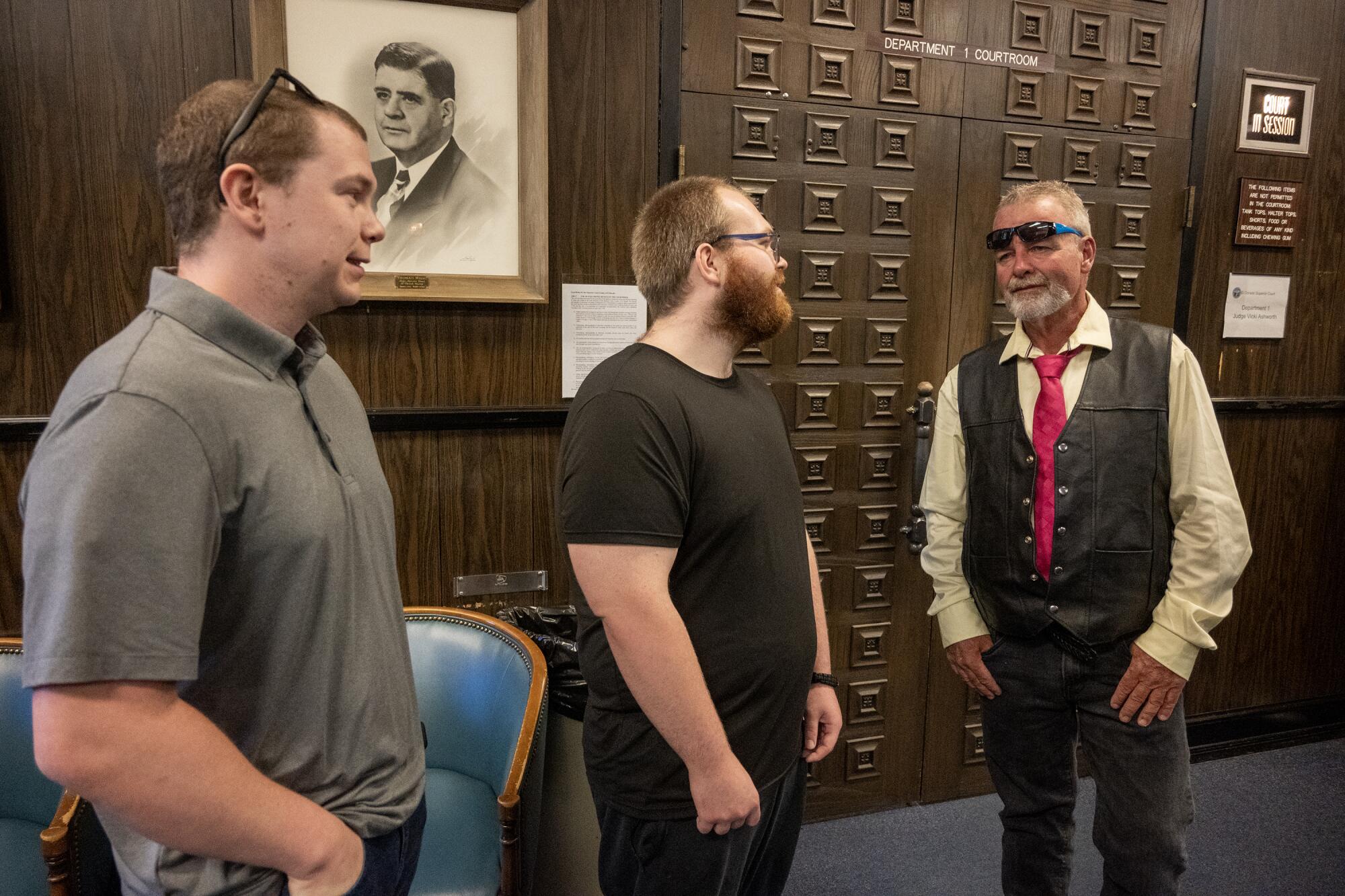
- Share via
PLACERVILLE, Calif. — An El Dorado County Superior Court judge Friday formally exonerated a deceased Oregon woman who had falsely confessed to a brutal murder in the Sierra Nevada foothills decades ago, bringing closure to her two adult sons who were children when she was imprisoned for a crime she did not commit.
“Oftentimes the public thinks the job of a prosecutor is to do nothing but come in and try to put people away,” said Lisette Suder, an El Dorado County assistant district attorney. “And that’s really not our job at all. Our job is to seek justice.”
She told the judge: “We are asking the court to legally undo a wrong. It was almost 40 years in the making, this wrong.”

Connie Dahl was 19 in 1985 when she and her then-boyfriend, Ricky Davis, returned from night of partying to find the desecrated body of a house guest in the upstairs bedroom.
Police quickly focused on Davis — and Dahl — as suspects rather than witnesses. But they were not charged and went their separate ways.
In 1999, investigators reopened the cold case and relentlessly interrogated Dahl. Though Dahl at first maintained her innocence, the investigators pressured her to adopt a version of the crime they believed was true, in which Dahl helped Davis carry out the killing.
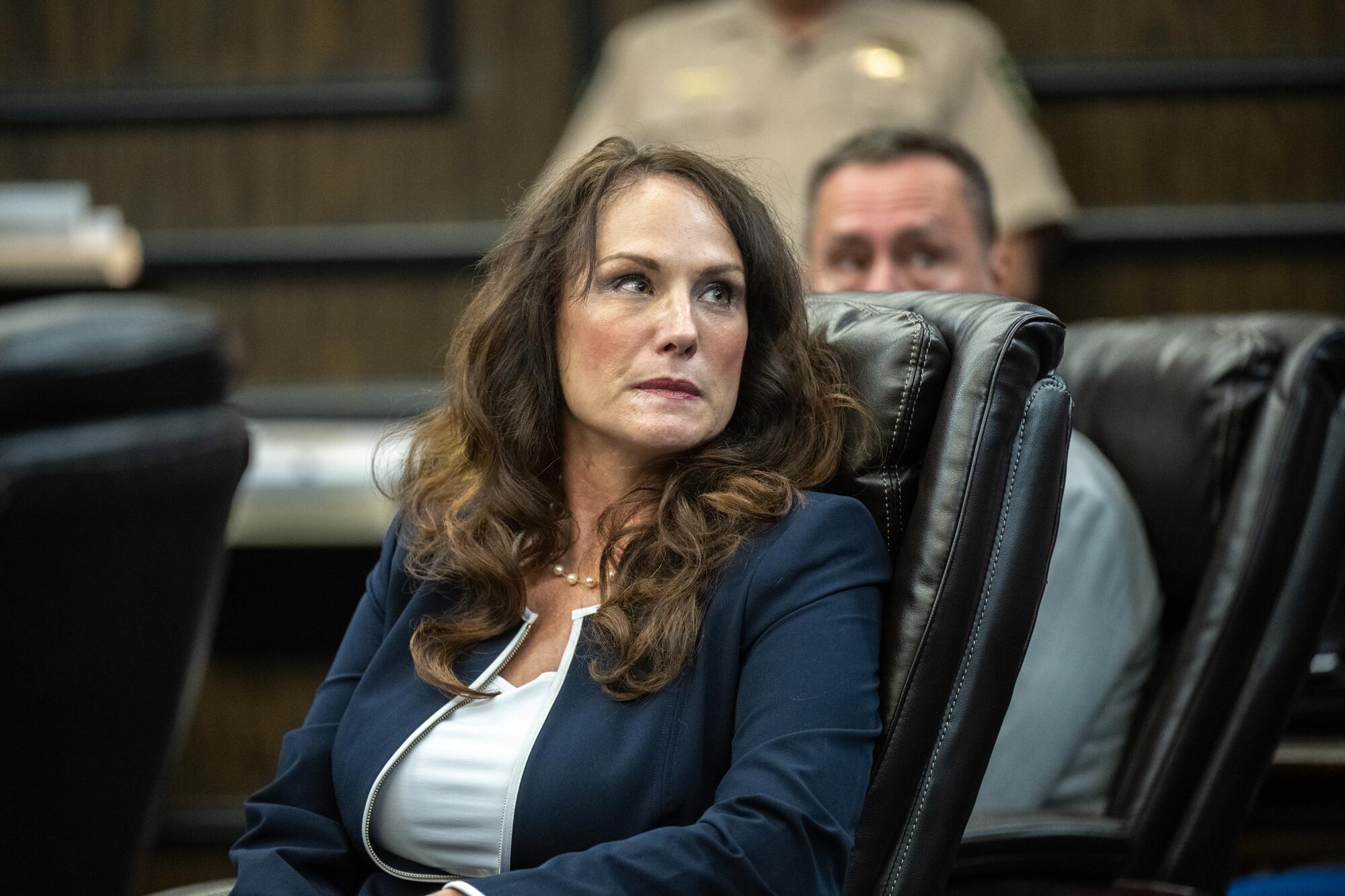
Davis was convicted in 2005, largely on Dahl’s false testimony, and sentenced to 16 years to life in prison. He was exonerated in 2020 based on DNA tests that proved he was innocent. The DNA also led police to the real killer, who pleaded no contest to the murder in 2022 and is now in prison. The same evidence proved Dahl was not involved in the crime, but she had died in 2014, and no one thought to clear her name.
Times reporters told El Dorado County Dist. Atty. Vern Pierson of the oversight, and that Dahl’s children had never been told that she was no longer considered guilty. Pierson quickly moved to ask the court to vacate her conviction and declare Dahl factually innocent.
Nearly two decades after a woman falsely confessed to a shocking murder, her sons finally see her exonerated from a wrongful conviction that derailed their lives.
On Friday, Pierson gathered with her two sons, Nick and Jarred Lange, at the El Dorado County Courthouse. Davis joined them.
Standing outside the courtroom before the hearing, Jarred and Nick met Davis for the first time. A colorful character wearing a bright pink tie and a leather biker vest who showed up on a red Harley-Davidson — he was, they agreed, just the kind of guy their mother would fall for.
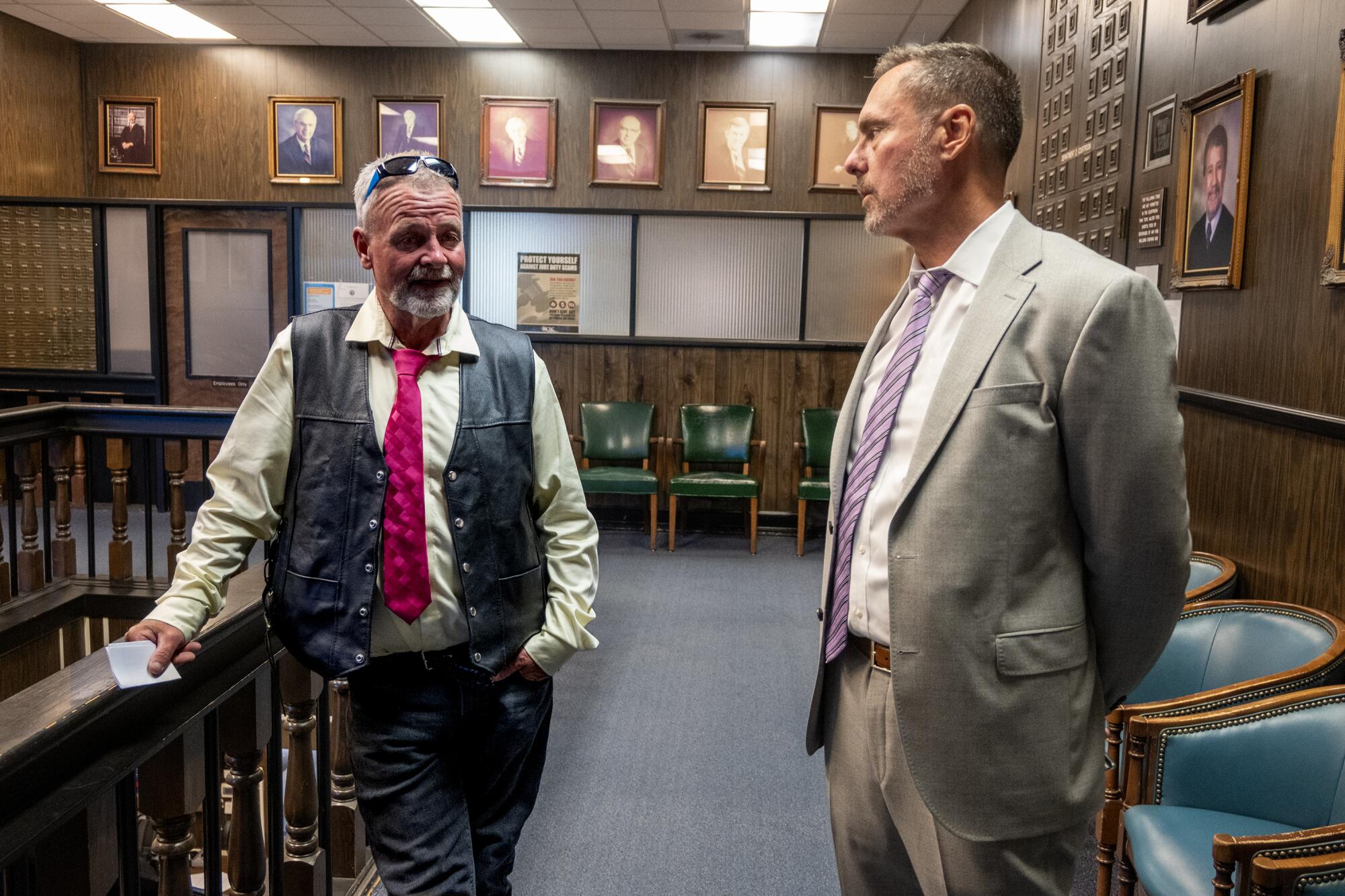
“I am sorry for what happened to you,” Jarred told Davis.
“Look, I was never really mad,” Davis told the brothers. “It was a malleable time in your mom’s life.”
Davis, who has spent years looking over the transcripts of Dahl’s interrogations, trying to understand why she would implicate them both in a crime they had nothing to do with, added, “I believe she was indoctrinated.”
“Yeah, and she started to question herself,” Jarred said.
Later, Davis would tell the judge: “I want to see her vindicated. She was as innocent as I was. She was railroaded in a different way.”
These men arrived almost at once at the courthouse Friday morning, passing through the metal detector one by one, even the district attorney was forced to remove his belt by an officer who did not recognize him. They stood awkwardly greeting one another as they put their belts back on, then walked up the wide staircase to wait outside Judge Larry E. Hayes’ courtroom.
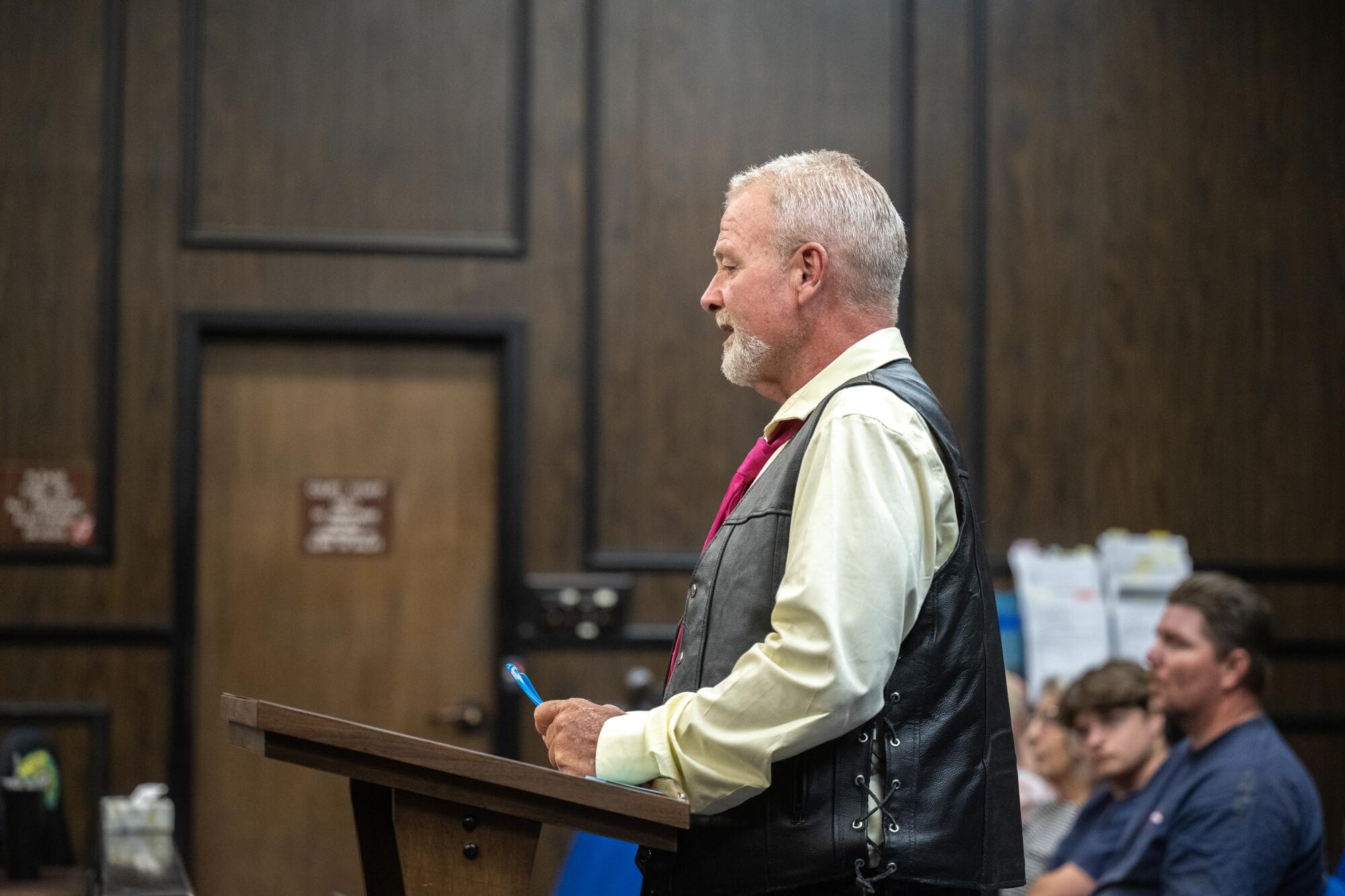
Then they filed in: The Lange brothers, who flew in from Oregon, took seats in the first row; Davis sat behind them. Other lawyers and family members of defendants in court for unrelated matters looked on in surprise.
“My condolences to the family and to the people who have been traumatized by this whole situation,” the judge said. “But I hope you walk out of the courtroom with finally justice being done in the correct way.”
The Lange brothers sat impassively. Nick, a father of 1-year-old twin boys, hesitated when the judge asked if they wanted to speak.
Finally, he stood: “I just wish she could be here for this. She has been gone for over 10 years, and in the 20 years I had with her she wasn’t well for most of the time. So I wish she could just be here and she would have gotten the help she deserved.”
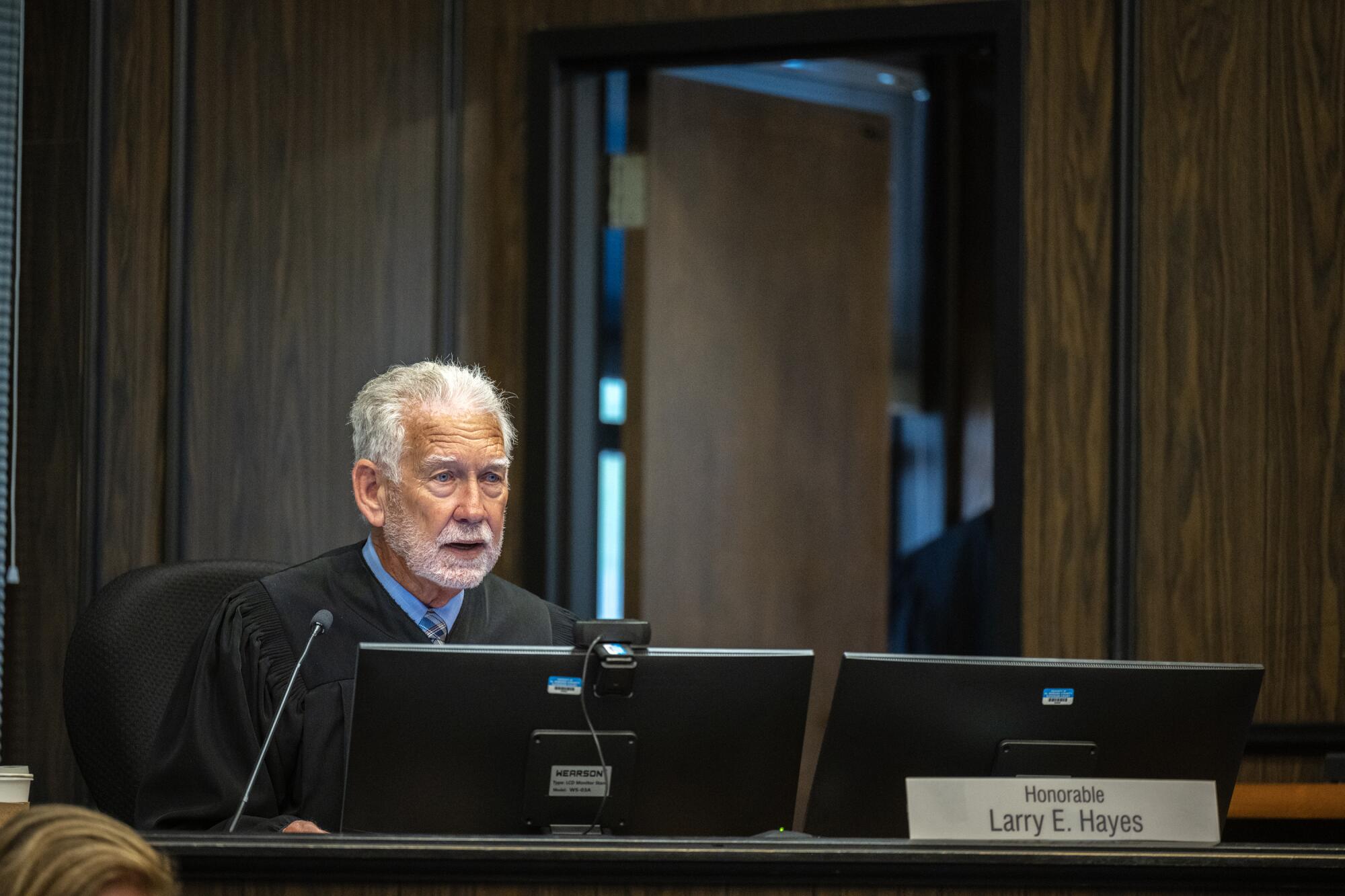
Earlier, Jarred and Nick described how their mother’s arrest wrecked their lives.
They were shuffled from relative to relative with little stability or understanding of why their mother was gone. When she was finally freed in 2006 and allowed to return to Oregon on probation, her record made it almost impossible to find a job or housing. For a time, they were homeless, living in a tent.
After the hearing, the Lange brothers said that they felt a sense of closure. It was not until meeting with a Times reporter in April 2023 they they learned the whole story of what had happened to her, Nick said. Ever since, he added, he has been thinking about how much his mother went through, and how the wrongful conviction affected all of them.
“Who knows what life could have been like, but it could have been better in almost any way,” Jarred said.
Pierson, the district attorney, offered an apology.
“We can’t take back or bring back the time she spent in custody here ... and the negative consequences that happened in her life as well as your life as a result of it,” Pierson told the Lange brothers in court. “But we can take responsibility for it and seek to do better in the future.”
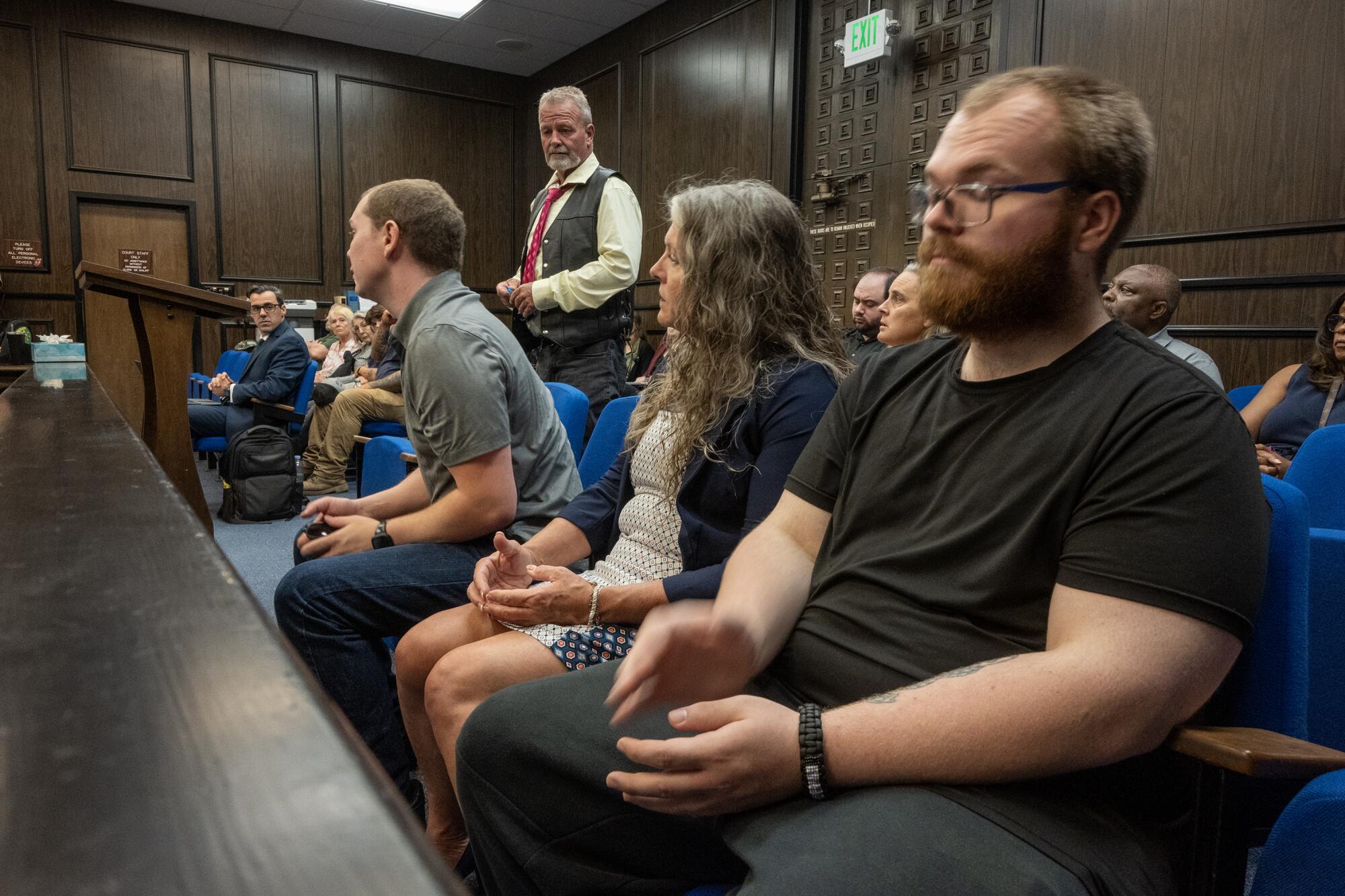
Pierson also offered a pledge to ensure that something like this won’t happen again. This case has convinced him the methods authorities use to interrogate suspects are outdated and can lead to false confessions and wrongful convictions.
Since exonerating Davis, he has been on a quest to change how detectives are trained, so that California and the country moves to what he describes as evidence-based tactics that pursue truth and facts over confessions. In 2021, he supported legislation that would have banned the kind of interrogations Dahl endured. But that bill was vetoed by Gov. Gavin Newsom, who cited the high price of retraining detectives across the state.
Pierson, working with the Innocence Project, was successful with a second piece of legislation that banned lying to suspects under the age of 18. That law went into effect this year.
The district attorney has also refused to prosecute any cases in his jurisdiction where confessions were obtained with the technique, and arranges training in science-based methods for investigators across the state.
“My goal has always been to change the way we train officers to do interviews and interrogation,” he said.
The Lange brothers walked out of the dim courthouse Friday morning and into the bright Northern California sun. They were surprised by how pleasant Placerville seemed, the charm of a Gold Rush town on a summer day.
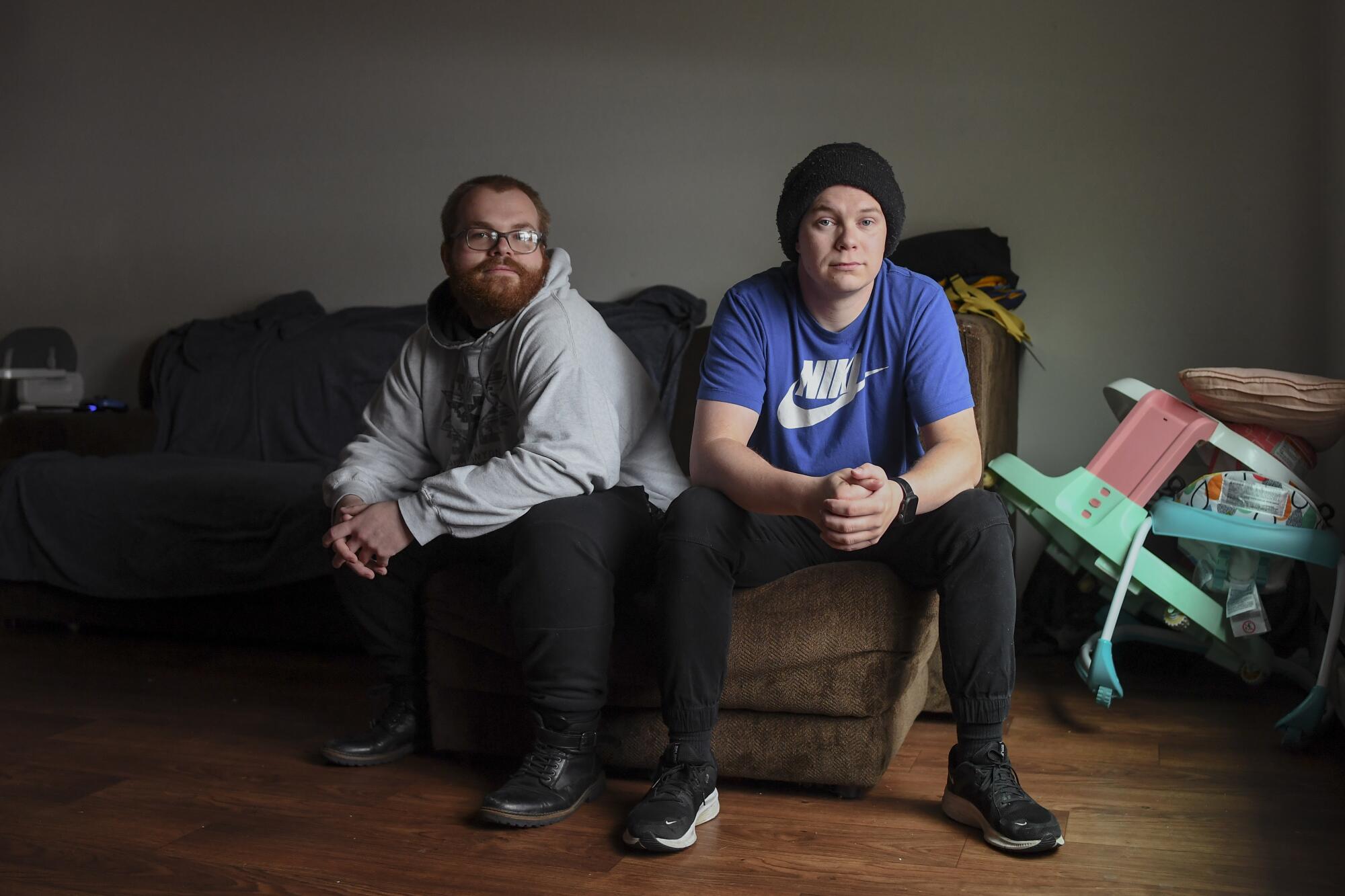
Their mom had once walked this stretch of shops and bars on Main Street in search of fun — a carefree young woman who didn’t understand how precarious her freedom was until it was gone.
They wished they could be here under different circumstances, and that she could have, too. The exoneration was important and even healing, but it was not justice.
“It’s nice to have this come to an end,” Jarred said. “It was a long time coming.”
More to Read
Sign up for Essential California
The most important California stories and recommendations in your inbox every morning.
You may occasionally receive promotional content from the Los Angeles Times.












